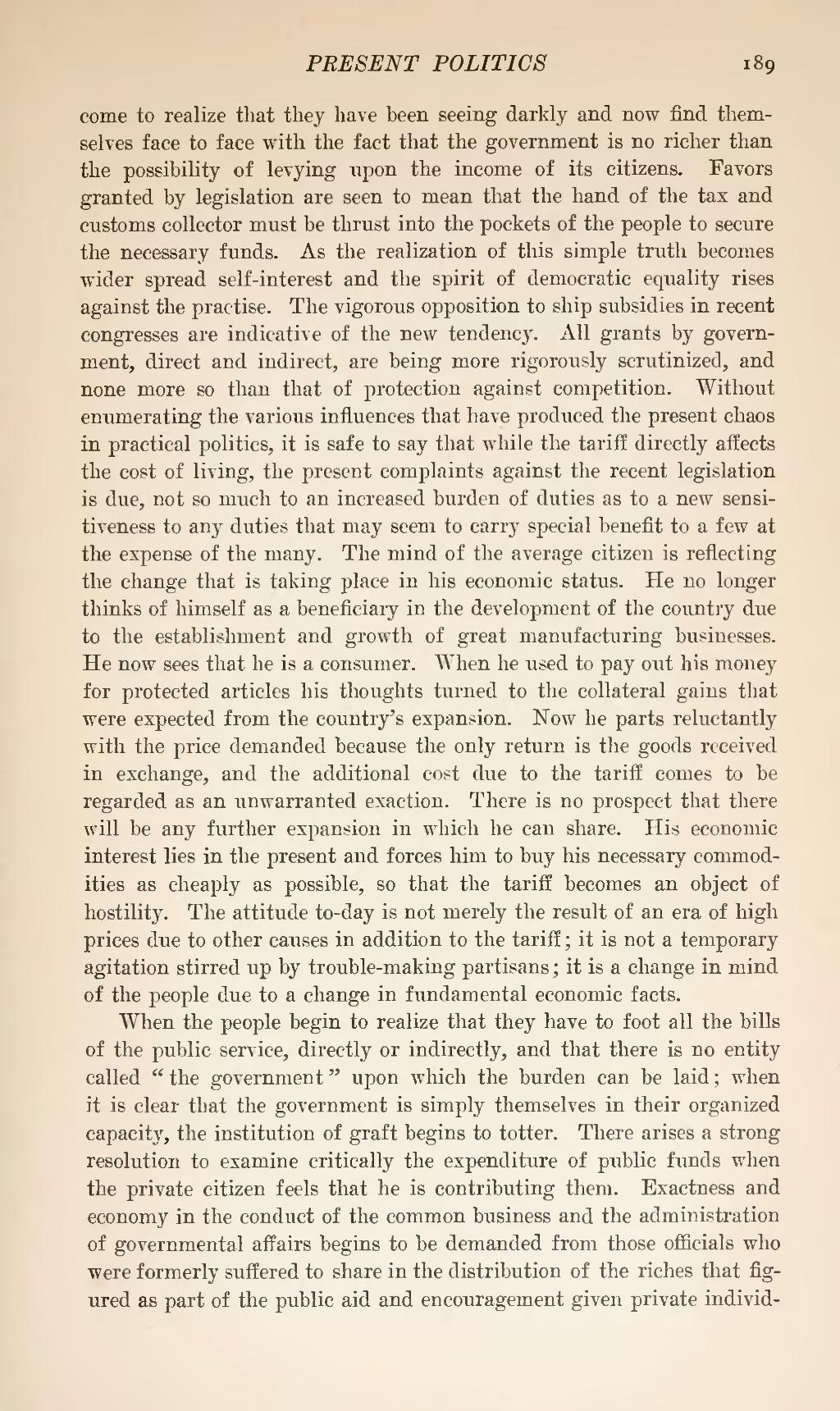come to realize that they have been seeing darkly and now find themselves face to face with the fact that the government is no richer than the possibility of levying upon the income of its citizens. Favors granted by legislation are seen to mean that the hand of the tax and customs collector must be thrust into the pockets of the people to secure the necessary funds. As the realization of this simple truth becomes wider spread self-interest and the spirit of democratic equality rises against the practise. The vigorous opposition to ship subsidies in recent congresses are indicative of the new tendency. All grants by government, direct and indirect, are being more rigorously scrutinized, and none more so than that of protection against competition. Without enumerating the various influences that have produced the present chaos in practical politics, it is safe to say that while the tariff directly affects the cost of living, the present complaints against the recent legislation is due, not so much to an increased burden of duties as to a new sensitiveness to any duties that may seem to carry special benefit to a few at the expense of the many. The mind of the average citizen is reflecting the change that is taking place in his economic status. He no longer thinks of himself as a beneficiary in the development of the country due to the establishment and growth of great manufacturing businesses. He now sees that he is a consumer. When he used to pay out his money for protected articles his thoughts turned to the collateral gains that were expected from the country's expansion. Now he parts reluctantly with the price demanded because the only return is the goods received in exchange, and the additional cost due to the tariff comes to be regarded as an unwarranted exaction. There is no prospect that there will be any further expansion in which he can share. His economic interest lies in the present and forces him to buy his necessary commodities as cheaply as possible, so that the tariff becomes an object of hostility. The attitude to-day is not merely the result of an era of high prices due to other causes in addition to the tariff; it is not a temporary agitation stirred up by trouble-making partisans; it is a change in mind of the people due to a change in fundamental economic facts.
When the people begin to realize that they have to foot all the bills of the public service, directly or indirectly, and that there is no entity called "the government" upon which the burden can be laid; when it is clear that the government is simply themselves in their organized capacity, the institution of graft begins to totter. There arises a strong resolution to examine critically the expenditure of public funds when the private citizen feels that he is contributing them. Exactness and economy in the conduct of the common business and the administration of governmental affairs begins to be demanded from those officials who were formerly suffered to share in the distribution of the riches that figured as part of the public aid and encouragement given private individ-

